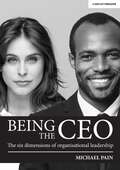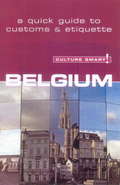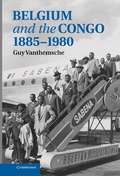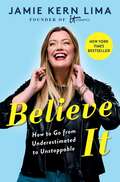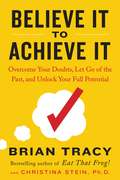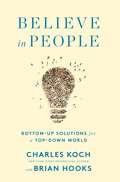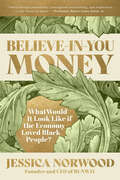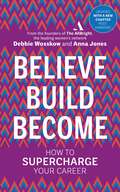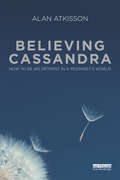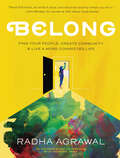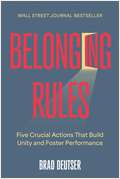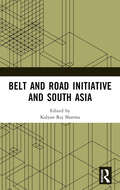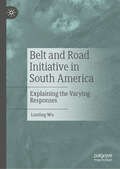- Table View
- List View
Being the Boss in Brussels, Boston, and Beijing
by Erin MeyerArticle - When misunderstandings arise among members of global teams, it's often because managers conflate attitudes toward authority and attitudes toward decision making. However, the two are different dimensions of leadership culture, says the author, who has extensive research and consulting experience with global companies. Attitudes toward authority range from strongly hierarchical to strongly egalitarian. Approaches to decision making vary from top-down to consensual. The author explores both dimensions and classifies selected countries according to their position on both scales. The Japanese, for example, are hierarchical in their views toward authority--deferential to the boss and accustomed to waiting for instructions rather than taking the initiative--but they are consensual decision makers who get buy-in before they set a course of action. The author describes the four cultural types--consensual and egalitarian; consensual and hierarchical; top-down and hierarchical; and top-down and egalitarian--and the corresponding expectations about leadership in each environment. If you keep those in mind, you'll be more successful in your cross-cultural interactions.
Being the CEO: The six dimensions of organisational leadership
by Michael PainThe job of a CEO is almost impossible to define. It is the most powerful and influential position in any organisation, yet very little discourse exists that attempts to provide a succinct formula for doing the job, never mind doing it well. In Being the CEO, Michael Pain, the Founder and CEO of Forum Strategy - a national company that focuses on strategy and organisational development consultancy - approaches the subject with delicacy and well-refined insight.This sharp and insightful book sees Michael use his knowledge and work on organisational strategy and development to lay out the six dimensions of the CEO, which reflects the six areas that are key to sustainable growth and success, with a unique look at sustainable organisational improvement and relevant policy and research insights.
Being the CEO: The six dimensions of organisational leadership
by Michael PainThe job of a CEO is almost impossible to define. It is the most powerful and influential position in any organisation, yet very little discourse exists that attempts to provide a succinct formula for doing the job, never mind doing it well. In Being the CEO, Michael Pain, the Founder and CEO of Forum Strategy - a national company that focuses on strategy and organisational development consultancy - approaches the subject with delicacy and well-refined insight.This sharp and insightful book sees Michael use his knowledge and work on organisational strategy and development to lay out the six dimensions of the CEO, which reflects the six areas that are key to sustainable growth and success, with a unique look at sustainable organisational improvement and relevant policy and research insights.
Belching Out the Devil: Global Adventures with Coca-Cola
by Mark ThomasMark Thomas-a legendarily seditious comedian and human rights activist-is a recovering Coca-Cola addict, a self-described "middle-aged fat dad with asthma" who decides to trek around the globe investigating the stories and people Coca-Cola's iconic advertising campaigns don't mention: child laborers in the sugarcane fields of El Salvador, Indian workers exposed to toxic chemicals, Columbian labor union leaders in Coke bottling plants falsely accused of terrorism and jailed alongside the paramilitaries who want to kill them.At once hilarious and disturbing, Thomas builds a very detailed and damning case against the world's most ubiquitous drink.
Belco Global Foods
by Matthew Johnson C. Fritz FoleyThis case introduces students to the fundamental issues that managers face when deciding what international trade finance terms to use when transacting with other firms. In late 2009, Pam Arnold, the Head of Global Credit at Belco Global Foods must decide which trade finance terms to offer to two new customers and how to pursue a claim against a customer who has missed a payment deadline.
Belgium - Culture Smart!
by Mandy MacdonaldCulture Smart! provides essential information on attitudes, beliefs and behavior in different countries, ensuring that you arrive at your destination aware of basic manners, common courtesies, and sensitive issues. These concise guides tell you what to expect, how to behave, and how to establish a rapport with your hosts. This inside knowledge will enable you to steer clear of embarrassing gaffes and mistakes, feel confident in unfamiliar situations, and develop trust, friendships, and successful business relationships.Culture Smart! offers illuminating insights into the culture and society of a particular country. It will help you to turn your visit-whether on business or for pleasure-into a memorable and enriching experience. Contents include* customs, values, and traditions* historical, religious, and political background* life at home* leisure, social, and cultural life* eating and drinking* dos, don'ts, and taboos* business practices* communication, spoken and unspoken"Culture Smart has come to the rescue of hapless travellers." Sunday Times Travel"... the perfect introduction to the weird, wonderful and downright odd quirks and customs of various countries." Global Travel"...full of fascinating-as well as common-sense-tips to help you avoid embarrassing faux pas." Observer"...as useful as they are entertaining." Easyjet Magazine"...offer glimpses into the psyche of a faraway world." New York Times
Belgium and the Congo, 1885-1980
by Guy Vanthemsche Alice Cameron Stephen Windross Kate ConnellyWhile the impact of a colonising metropole on subjected territories has been widely scrutinized, the effect of empire on the colonising country has long been neglected. Recently, many studies have examined the repercussions of their respective empires on colonial powers such as the United Kingdom and France. Belgium and its African empire have been conspicuously absent from this discussion. This book attempts to fill this gap. Belgium and the Congo, 1885-1980 examines the effects of colonialism on the domestic politics, diplomacy and economics of Belgium, from 1880 - when King Leopold II began the country's expansionist enterprises in Africa - to the 1980s, well after the Congo's independence in June of 1960. By examining the colonial impact on its mother country Belgium, this study also contributes to a better understanding of Congo's past and present.
Belgium: Selected Issues
by International Monetary FundA report from the International Monetary Fund.
Belgium: Selected Issues--Regional Labor Markets
by International Monetary FundA report from the International Monetary Fund.
Beliefs and Boundaries: Framing the Strategic Domain
by Robert L. SimonsAs an organization's opportunities expand and the pressures for performance increase, a clear belief system and enforceable boundary system become increasingly important to organizational life. This chapter examines the countervailing forces generated by belief systems and boundary systems, and suggests how managers can control these levers to support business strategy.
Believe IT: How to Go from Underestimated to Unstoppable
by Jamie Kern Lima#1 WALL STREET JOURNAL BESTSELLER • NEW YORK TIMES BESTSELLER • USA TODAY BESTSELLER ARE YOU READY TO BELIEVE IN YOU? &“Game-changing. Authentic. A must-read for every woman! Jamie is the real deal—and that&’s rare.&” —Glennon Doyle, #1 New York Times bestselling author of Untamed &“Raw. Real. Powerful. Filled with vulnerability and grit. This book will inspire you to believe in your own power. It&’s a book every woman needs!&” —Sara Blakely, Founder SpanxImagine overcoming the things holding you back, breaking through the barrier of self-doubt and fully becoming the person YOU were BORN TO BE! In Believe IT, Jamie Kern Lima, founder of IT Cosmetics, shares the wild but true story of how a once struggling waitress turned her against-the-grain idea into an international bestselling sensation, eventually selling the company for over a billion dollars and becoming the first female CEO of a brand in L&’Oréal&’s 100+ year history. Faced with self-doubt, body-doubt, God-doubt, down to her last few dollars and told &“No one is going to buy makeup from someone who has your body,&” Jamie reveals for the first time what really went down, how she almost didn&’t make it, how she learned to trust herself, and the powerful lessons you, too, can use to go from underestimated to unstoppable. With radical vulnerability and honesty, Jamie takes you on a journey through deeply personal stories of heartbreak and resilience—including accidentally finding out she was adopted when she was in her twenties and the reverberations this has had on all aspects of her life. Jamie also pulls back the curtain on her fight to change the beauty industry&’s use of unrealistic images, on behalf of all the little girls who are about to start doubting themselves, and all of the grown women who still do. Spellbinding, riveting, with raw vulnerability and down-to-earth warmth, Believe IT shakes your soul and shows you that you, too, have what it takes to believe in yourself, trust yourself, and go from doubting you&’re enough to knowing you&’re enough! Do you have big goals, hopes, and dreams but let rejection get in the way? Do you struggle with feeling like you&’re not enough and like success is something that happens to other people, but have a hard time believing it&’s possible for you? Do you let past mistakes and failures hold you back? Do you know deep down inside that you were created for more, but somehow still doubt yourself? In Believe IT you&’ll discover how to... -Overcome self-doubt -Gain the courage to take risks, an empower yourself and others -Tune into and trust your own intuition -Let go of your mistakes and insecurities -Turn down the volume on your inner critic -Handle the rejection, the haters, and the mean girls -Boost your confidence -Start your dream (and keep going!) -And much more… If you&’ve ever doubted yourself or felt truly underestimated, this book will inspire a new kind of belief and confidence in you and your dreams!
Believe It to Achieve It: Overcome Your Doubts, Let Go of the Past, and Unlock Your Full Potential
by Brian Tracy Christina SteinFrom the bestselling author of Eat That Frog!, a motivational guide to using the Psychology of Achievement to banish negative thoughts and behaviors and unlock your full potential for success.Letting go of negative thoughts is one of the most important steps to living a successful, fulfilling life, but also often the most difficult. In this practical, research-based guide, bestselling authors Brian Tracy and psychotherapist Christina Stein present their "Psychology of Achievement" program to help you identify and overcome detrimental patterns and ideas preventing you from achieving your goals or feeling happy and satisfied in your life. Whether this negativity stems from a past relationship that ended badly, a childhood trauma, a business or career failure, or general insecurity, Tracy and Stein help you recognize how conscious--and more oftentimes unconscious--negativity affects your personality, your outlook and your decisions. Along the way, they show you how to regain control of your thoughts, feelings, and actions, turn negatives into positives, and learn to accept unexpected life changes without falling back into old negative patterns.Essential reading for anyone feeling stuck, BELIEVE IT TO ACHIEVE IT offers an important roadmap to conquer negativity and embrace the power of positive thinking to live a happy, successful life.
Believe in Magic: 30 Years of Heavenly Recordings
by Robin Turner''Heavenly is more than a record label, it''s the absolute nectar of all that''s brilliant in the culture of these island. I love the shit out of them and everything they stand for.'' Irvine WelshBELIEVE IN MAGIC tells the story of Heavenly Recordings in thirty vignettes, photography and ephemera, all of which relate to landmark records, moments and characters in the label''s first three decades.A label responsible for creating satellite communities of fans around the world and at all the major festivals, Heavenly was set up by Jeff Barrett in 1990 after several years working for Factory and Creation as the acid house revolution was in full swing; early releases set the tone and tempo for the mood of the decade to come - their first single was produced by perhaps the most revered acid house DJ of them all, Andrew Weatherall; and this was quickly followed by era-defining singles from Saint Etienne, Flowered Up and Manic Street Preachers, music which perhaps captures the flavour of the early ''90s better than any other.Heavenly was always tuned to an aesthetic that was sensitive to the anarchic spirt of the times; defiantly eclectic with a radar set to taste and a never-ending commitment to discovering new talent. In 1994 they set up The Heavenly Sunday Social, which became one of the most influential and mythologised clubs in recent British history, where the Chemical Brothers - then the Dust Brothers - made their name. For thirteen weeks, it was the hottest nightclub on the planet. For 180 demented acolytes in a basement room below the Albany pub.Over nearly 200 releases in thirty years Heavenly have consistently produced some of the most exciting music across all genres, and this book collects rare artwork and wild anecdotal evidence into a celebration of a label that is one of the most beloved institutions on the independent landscape.BELIEVE IN MAGIC includes contributions from Manic Street Preachers, Beth Orton, Doves, Don Letts, Edwyn Collins, Confidence Man, Mark Lanegan, King Gizzard and The Lizard Wizard.
Believe in People: Bottom-Up Solutions for a Top-Down World
by Charles Koch Brian HooksA surprising take on how you can help tackle the really big problems in society–from one of America’s most successful entrepreneurs.People are looking for a better way. Towering barriers are holding millions of people back, and the institutions that should help everyone rise are not doing the job. Crumbling communities. One-size fits all education. Businesses that rig the economy. Public policy that stifles opportunity and emboldens the extremes. As a result, this country is quickly heading toward a two-tiered society.Today’s challenges call for nothing short of a paradigm shift – away from a top-down approach that sees people as problems to be managed, toward bottom-up solutions that empower everyone to realize their potential and foster a more inclusive society.Such a shift starts by asking: What would it mean to truly believe in people?Businessman and philanthropist Charles Koch has devoted his life to answering that question. Learn what he’s discovered during his 60-year career to help you apply the principles of empowerment in your life, in your business, and in society.By learning from the social movements and applying the principles that have enabled social progress throughout history, Koch has achieved more than he dreamed possible – building one of the world’s most successful companies and founding Stand Together, one of America’s most innovative philanthropic communities. Stand Together CEO Brian Hooks and Koch show how the only way to solve the really big problems – from poverty and addiction to harmful business practices and destructive public policy – is for each and every one of us to find and take action in our unique role as part of the solution.Full of compelling examples of what works – including several first-person accounts from individuals whose lives have been transformed – Koch and Hooks’ refreshing approach promotes partnership instead of partisanship and speaks to people from different perspectives and all walks of life. They show that no injustice is too tough to overcome if you share a deep belief in people, are willing to unite with anyone to do right, and work to empower others from the bottom up.
Believe-in-You Money: What Would It Look Like If the Economy Loved Black People?
by Jessica NorwoodOffering a revolution in Black business financing, this book centers the entrepreneur and responds to the systemic failures surrounding Black wealth building.America has a huge racial wealth gap today. Owning a business is one of the best ways to build wealth-but entrepreneurs need capital. And investing in Black companies is obstructed by systemic racism and implicit biases that continue to create barriers to success. Merging historical information and data with tactical examples and explanations, this practical guide shows us what needs to be done to change the way we support Black companies and how we think about wealth.Norwood calls for investors to move away from extractive, individualistic, and exploitative approaches to capital and entrepreneurship. She asks us to move toward transformational, restorative, regenerative, and interdependent relationships to repair the impacts of systemic racism. Investors, large and small, need to say to Black business owners, We believe in you.With an entrepreneur-centric approach, Believe-in-You Money challenges the systemic failure surrounding Black companies. This book is a guide on how Black entrepreneurs can be supported in sustainable ways and offers a shift in the way we think about who can be an investor while also aiming to change our personal relationships with money.
Believe. Build. Become.: How to Supercharge Your Career
by Anna Jones Debbie Wosskow***UPDATED WITH A NEW CHAPTER POST-PANDEMIC***Want to be your own boss? Or want to be THE boss? Start here.Believe. Build. Become. is a hands-on manual designed to help any woman develop the skills and mindset she needs to become a successful leader. Based on the AllBright Academy courses created by entrepreneur Debbie Wosskow (OBE, Founder of Love Home Swap) and leading businesswoman Anna Jones (former CEO of Hearst), Believe. Build. Become. offers a chapter-by-chapter system for readers to work through, focusing on the skills and confidence required to master the mindset of leadership. Debbie and Anna also reveal their own journeys to success - the gritty reality, the lessons learned and how they really got to the top. This is an inspirational, practical and accessible guide to becoming the boss you want to be.
Believing Cassandra: How to be an Optimist in a Pessimist's World
by Alan AtKissonA bestseller on Amazon.com within months of its first release, Alan AtKisson's debut book quickly became a modern classic of sustainability literature. Global companies, grassroots groups, university courses, government agencies, and even the US Army ordered it by the box. Now fully revised and updated, Believing Cassandra: How to be an Optimist in a Pessimist's World is even more relevant, fresh, and motivating than when it first appeared in 1999. In a style that's refreshingly candid and vivid, with unforgettable personal anecdotes, AtKisson provides us with a bridge over the sea of despair, and shows us how to catch the wave to an enticing, sustainable future. He empowers the reader to join the pioneers who created the ideas, techniques and practices of sustainable living - the people who prove Cassandra's warnings wrong, by believing in them, and taking strategic action.
Belk: Towards Exceptional Scheduling
by Bradley R. Staats Ethan S. Bernstein Saravanan Kesavan Luke HassallWith 24,000 staff and over 300 stores, Belk Inc. sought to replace its entirely manual labor scheduling system with an automated software solution from Reflexis. Belk hoped the upgrade would simplify scheduling, reduce time employees spent in non-customer-facing roles, and result in improved allocation of resources through the use of big data, thereby increasing sales productivity. Like many other retailers, Belk expected the benefits from automated scheduling software to be significant. But unlike other retailers who took an iron hand approach to push compliance, Belk's implementation permitted store managers "edit" the system to "fix" the "bugs" in the automated schedules-seeking not to replace labor but rather inform it. Belk commenced piloting the solution in May of 2013 and subsequently expanded the number of stores running the software to 50 over the course of 2013. Despite signs of initial success with the stores running the scheduling solution, Bass quickly began to notice a significant issue with the implementation: over 70% of shifts generated by the system were receiving manual overrides ("edits") by the store managers. Store managers believed the edits were necessary to remain responsive to local needs-and were, indeed, productive. Senior executives were skeptical, concerned that edits indicated resistance to productive change, and unsure of why Belk had spent so much time and money on an automated system only to have the stores override it. Having deliberately allowed store managers and lead schedulers to override the system, SVP Eric Bass (a retail store veteran who worked his way up to corporate) now needed to understand how and why they were doing so, and make sure that those edits were being made in a constructive manner. In a disagreement between human and machine, Belk allowed humans to win by design by giving them the right to edit the 'optimized' schedules.
Bella Healthcare India
by Dorothy Leonard Sunru YongBella Healthcare India was originally established in Bangalore as a low-cost manufacturing facility for a U.S.-based cardiology equipment developer. Under country manager Joseph Cherian it evolved considerably, developing its own research and development capabilities. Strengthened by investment in technical training and a shift in culture and mindset, the India team developed and launched its first successful product in 2005 under the guidance of Cherian and American Jeremy Manning, the Bella India director of R&D. Their success led them to a joint product development venture with the parent company, but organizational, technical, and cultural issues resulted in its cancellation. After this disappointing failure, is Bella India ready to lead a new product development project? If so, is the new project proposed by Cherian the right one to recover with?
Belleville: A Popular History
by Gerry BoyceWinner of the 2010 Ontario Historical Society’s Fred Landon Award for Best Regional History. Belleville, on the shores of the Bay of Quinte, traces its beginnings to the arrival of the United Empire Loyalists. For 30 years the centre of the present city was reserved for the Mississauga First Nation. White settlers who built dwellings and businesses on the land paid annual rent to them until the land was "surrendered" and a town plot laid out in 1816. The new town quickly became an important lumbering, farming, and manufacturing centre. Early influences include the Marmora Iron Works of the 1820s, the first railway in 1856, Ontario’s first gold rush in 1866, and prominent citizens such as noted pioneer author Susanna Moodie and Sir Mackenzie Bowell, Canada’s fifth prime minister. This is a personal history of Belleville, based on Gerry Boyce’s half-century of research. Embedded throughout are interesting and obscure stories about scandals, murders, and hauntings — the underbelly of the growth of a city.
Belmont Industries, Inc. (A)
by Joseph L. BowerA new general manager has to propose a salary structure for the top 20 managers. His task is complicated as he learns about past performance, ambitions, interpersonal relations, and market conditions. A rewritten version of an earlier case.
Belong: Find Your People, Create Community, and Live a More Connected Life
by Radha AgrawalGet ready to focus on the single most important thing you can do to live a happy, healthy, and successful life: BELONG.“Read this book, do what it says, and discover exactly where you fit in.”—John Mackey, Co-founder and CEO, Whole Foods Market “If you want to belong, read this book.”—Deepak Chopra, MD “From the moment I opened this book I was hooked. This book is caring and tender, challenging and action-driven. It is now on my recommendation list.”—Esther Perel, author of Mating in Captivity and The State of Affairs, host of Where Should We Begin? podcast How is it that the internet connects us to a world of people, yet so many of us feel more isolated than ever? That we have hundreds, even thousands of friends on social media, but not a single person to truly confide in? Radha Agrawal calls this “community confusion,” and in Belong she offers every reader a blueprint to find their people and build and nurture community, because connectedness—as more and more studies show—is our key to happiness, fulfillment, and success. A book that’s equal parts inspiring and interactive, and packed with prompts, charts, quizzes, and full-color illustrations, Belong takes readers on a two-part journey. Part one is Going IN—a gentle but intentional process of self-discovery and finding out your true energy levels and VIA (values, interests, and abilities). Part two is Going OUT—building on all that you’ve learned about yourself to find those few special people who feed your soul, and discovering, or creating, the ever-widening groups that align with your aims and desires. As the Co-founder and CEO of the popular global morning dance community Daybreaker, Radha Agrawal developed an immense offline community with her team of Community Catalysts in 25 cities and on a dozen college campuses around the world by creating a physical space for people to connect, self-express, sweat, and dance. Now, Radha offers the life-changing strategies, tips, and tricks for making friends that will light your fire and give you the exhale of “Ahh, I’m home.” “Radha has written a book that’s fun to read, easy to digest, and embodies deep wisdom. This isn’t just a book I’m endorsing. This is a book that I want to buy multiple copies of because I have so many friends and acquaintances that will benefit from it. It’s the first book I couldn't wait to finish reading it so I could give my copy to one of my friends to read the same day.” —Tony Hsieh, CEO of Zappos and author of Delivering Happiness
Belonging Rules: Five Crucial Actions That Build Unity and Foster Performance
by Brad DeutserWall Street Journal Bestseller Leaders have an unprecedented opportunity to overcome the great disconnect between employers and employees by inviting individuals to become part of something bigger than themselves—to belong. Belonging Rules gives leaders the tools, knowledge, and confidence to harness belonging to address the workplace&’s most critical challenges. The need to belong is innate and enduring, yet often elusive. Genuine belonging requires a bold approach, one that offers both depth and credibility to the work required from leaders whose organizations are craving a sense of connection, security, and acceptance. Belonging Rules offers nuanced, direct guidance for navigating both the pre-existing and ever-evolving social and organizational demands of today&’s workplace. The five rules within, based on extensive research and application, create a framework to dissect and decode the complex, complicated, and controversial issues of the modern workforce. Executive coach and award-winning management consultant Brad Deutser gives leaders the confidence to address the most critical societal imperative—belonging. His approach doesn&’t tell leaders what to do, rather he provides leaders with the how to: Identify the heart of existing power structures and societal mandates Reframe the impact of inclusion at an individual and organizational level Challenge and fundamentally redefine the relationship with diverse stakeholders Leading can be uncomfortable. This guide will empower leaders to shift attention, understanding, and effort toward bridging differences and uniting the &“movable middle&” which depowers the extremes, driving necessary change and desired performance.
Belt and Road Initiative and South Asia
by Raj Kalyan SharmaBelt and Road Initiative (BRI) has been an obscure concept, and it remains difficult to distinguish what BRI is and isn’t, making it difficult for many governments and global corporations to properly participate in it. I am delighted to present the opinions and perspectives of many eminent researchers, professors and experts from various countries on the Belt and Road Initiative (BRI). The book contains 11 chapters which are written by distinguished researchers and practitioners from various parts of Asia. While these 11 chapters discuss the many characteristics of the BRI, including advantages and costs, they also convey the lessons that many other Southeast Asian countries have learned. Each chapter offers valueable lessons to the countries that have yet to participate in the initiatives.
Belt and Road Initiative in South America: Explaining the Varying Responses
by Lunting WuThis book is concerned with the varying responses of South American countries to the Belt and Road Initiative (BRI). Since Beijing launched the Belt and Road Initiative in 2013, 3/4 of countries in the world have engaged with China's arrangement of promoting global physical and digital connectivity. This still leaves a quarter of them that have refused China’s offer so far or withdrawn. How do we account for why countries chose to join the BRI while others do not? Research on South American countries’ responses to the BRI is scant, but the topic is pertinent. While the great-power competition and systemic rivalry have spoiled the appetite of European countries to intensify their ties with China, many developing countries seem to be rather interested. This book will interest scholars of international political economy, geopolitics, foreign policy and international development.

